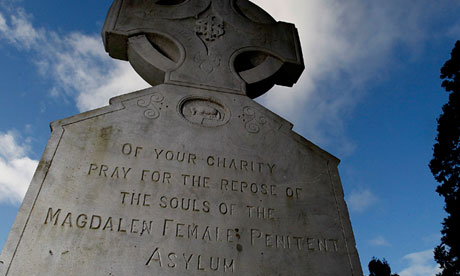For many long years, the women who slaved in Ireland's Magdalene laundries were ignored as those whose lives were shattered by incarceration in the industrial school system were having their say and arranging compensation for their suffering.
It has only been in this past year that the Irish government apologized to the forgotten Maggies, seventeen years after the last laundry closed and bodies turned up in a laundry cemetery, the women unnamed and their deaths undocumented.
Those who sought justice for the Magdalenes had to go to the United Nations and plead their case because the Irish government would not listen. The UN demanded a full report from Ireland, and a report was prepared that led to Enda Kenny issuing an apology on behalf of the Irish State.
The report, however, is not exactly what the United Nations Committee Against Torture was looking for. A report that is half empty is not going to be accepted as a full and detailed reply to the many issues that were raised by the UN's investigation into the inhuman treatment doled out by the Sisters of Mercy or the Good Shepherd nuns.
And a report written by the government bodies being investigated for colluding with the Sisters to incarcerate women against their will is not what the UN asked for when it asked for a thorough review of what happened for decades behind the high walls and locked doors.
How did it come to be that a pregnant, unmarried woman could be locked up without trial and without a defined period of incarceration, to work for no wages and have her child taken from her whether she wanted to give it up or not? By what law was a pretty girl locked up because her parish priest thought her too tempting to the local boys? Who determined that the girls born to the Magdalene women would be sent to the laundry in their turn when they were too old to remain in the industrial schools?
Where, the UN Committee asked, is the testimony of the survivors? Where is the State's plan to pursue criminal charges in regard to the cases of abuse? What about a compensation plan? Will the funds go to the women who paid the price of a policy designed to contain females, or will the solicitors reap the benefits?
A report half empty is not as good as one that is half full. If the Irish government thought that the United Nations would be satisfied with it, they have learned that the UN is not such an optimistic group as the State might have hoped.


No comments:
Post a Comment